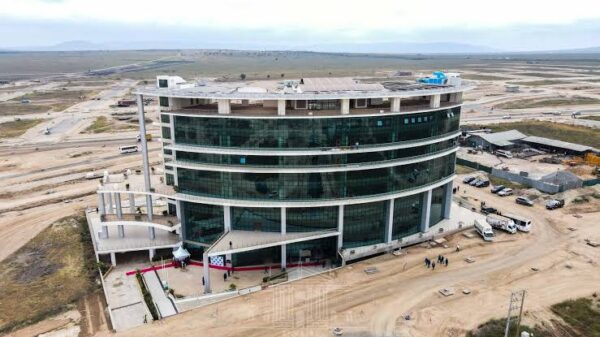LONDON, June 17 – Britain declared a goal to become the world\’s "digital capital" on Tuesday by building cutting-edge broadband, telecoms and media infrastructure to cement its role as a "global economic powerhouse".
Prime Minister Gordon Brown compared the digital revolution to the 19th century construction of roads and railways which laid the foundations for the Industrial Revolution in Britain.
Although it currently trails many countries in criteria such as broadband penetration and mobile phone usage, Brown said Britain could leapfrog into the global lead.
"Britain is going to lead the world. This is us taking the next step into the future, being the digital capital of the world," he said.
The long-awaited "Digital Britain" report set out wide-ranging aims for Britain\’s communications industry, including a new broadband access commitment and new powers to crack down on illegal downloading of films and music.
It also outlined plans to upgrade all radio from analogue to digital by 2015 and to enhance the coverage of 3G and next generation mobile services.
Brown, who visited a media firm in southeast London ahead of the launch, said high-speed broadband access would be as essential in the future as gas, electricity or water are now.
Under the new commitment, every home and business will have access to at least two megabits per second (2Mbps) broadband by 2012, paid for with 200 million pounds (330 million dollars, 240 million euros) in public funds.
However, critics have claimed this target is unambitious, pointing out that the national average broadband access speed is already nearly double this.
The report also promised to give 90 percent of Britain a "super-fast" connection by 2017. Taxpayers would again pick up the bill to extend access to areas where it would not be commercially viable.
Writing in the Times, Brown said digital technology could help Britain emerge stronger from the global downturn, which has hit London harder than some cities due to its dependence on banking and financial services.
"Just as the bridges, roads and railways built in the 19th century were the foundations of the Industrial Revolution… so investment now in the information and communications industries can underpin our emergence from recession… and cement the UK\’s position as a global economic powerhouse," he said.
"Broadband is at a tipping point. High-speed Internet access will soon be essential for everyone. Only a digital Britain can unlock the imagination and creativity that will secure for us and our children the high-skilled jobs of the future in a global economy," he added.
The report also said the government would consult on sharing some of the BBC licence fee — a levy raised on everyone who has a television which funds the corporation — with other broadcasters to provide public service television shows such as news and children\’s programmes from 2013.


































